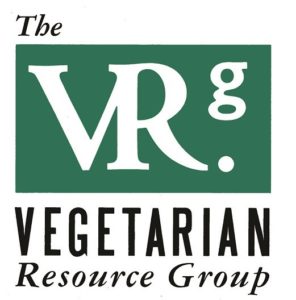Update on Saturated Fat

By Reed Mangels, PhD, RD
A reader contacted us because their nonvegan friends were saying that there was no need to avoid cheese or whole-fat dairy products even though these foods are high in saturated fat. There’s been some talk in the popular press lately about whether saturated fat is harmful and whether the saturated fat in dairy products is an issue.
Saturated fat is a kind of fat that is most often solid at room temperature, unlike oils, which are liquid. Foods like red meat, cheese, whole milk, ice cream, butter, lard, and tropical oils (palm, palm kernel, and coconut oil) all have high amounts of saturated fat. Despite being oils, tropical oils are very high in saturated fat (1).
Diets high in saturated fat are associated with higher blood levels of LDL cholesterol, which increases risk of heart disease. Additionally, a diet high in saturated fat makes it more likely that cholesterol will build up in blood vessels, leading to a greater risk of heart disease and stroke. A meta-analysis of high-quality research studies in which saturated fat was replaced with unsaturated fat found that heart disease risk was reduced by about 30%, similar to the risk reduction when statin drugs are used (2). Because of the evidence for harmful effects of saturated fat, Dietary Guidelines for Americans, 2020-2025, recommends that those age 2 years and older get less than 10% of their calories from saturated fat (3).
Although dairy products can contain significant amounts of saturated fat (more than the upper limit for saturated fat for an entire day in a cup of premium ice cream), some research does not find higher risk of heart disease associated with greater use of higher fat dairy products (4). Additionally, one study did not find an association between higher blood levels of fats from dairy products and increased risk of heart disease in older adults (5). Of course, many other factors such as overall dietary composition could have affected these results. Other studies show that replacing the saturated fat from dairy products with vegetable fat is associated with a lower risk of heart disease and stroke (6). In one study, replacing as little as 5% of a day’s calories from dairy fat with unsaturated fat was associated with a 24% lower risk of heart disease (7).
Plant foods (other than tropical oils) are lower in saturated fat than dairy products and meat and are a healthier choice. The limited amount of saturated fat in many vegan diets could help to explain why vegans are less likely to die from heart disease than are nonvegetarians.
References
1. Eyres L, Eyres MF, Chisholm A, Brown RC. Coconut oil consumption and cardiovascular risk factors in humans. Nutr Rev. 2016 ;74:267-80.
2. Sacks FM, Lichtenstein AH, Wu JHY, et al; American Heart Association. Dietary fats and cardiovascular disease: A Presidential Advisory from the American Heart Association. Circulation. 2017; 18;136(3):e1-e23.
3. U.S. Department of Agriculture and U.S. Department of Health and Human Services. Dietary Guidelines for Americans, 2020-2025. 9th Edition. December 2020. DietaryGuidelines.gov
4. Hirahatake KM, Astrup A, Hill JO, Slavin JL, Allison DB, Maki KC. Potential cardiometabolic health benefits of full-fat dairy: The evidence base. Adv Nutr. 2020;11(3):533-547.
5. de Oliveira Otto MC, Lemaitre RN, Song X, King IB, Siscovick DS, Mozaffarian D. Serial measures of circulating biomarkers of dairy fat and total and cause-specific mortality in older adults: the Cardiovascular Health Study. Am J Clin Nutr. 2018;108(3):476-484.
6. Yu E, Hu FB. Dairy products, dairy fatty acids, and the prevention of cardiometabolic disease: a review of recent evidence. Curr Atheroscler Rep. 2018;20(5):24.
7. Chen M, Li Y, Sun Q, et al. Dairy fat and risk of cardiovascular disease in 3 cohorts of US adults. Am J Clin Nutr. 2016;104(5):1209-1217.
